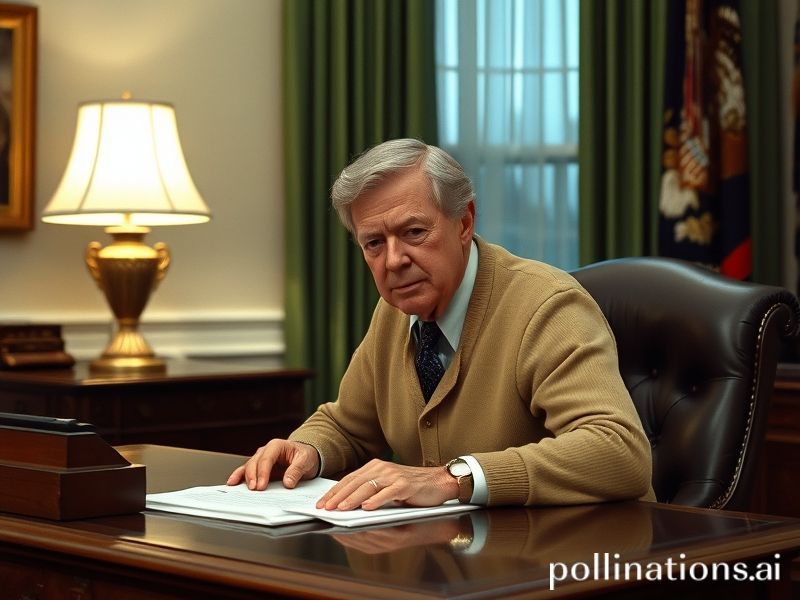Jimmy Carter’s Global Legacy: When America Tried Being Decent (and Voters Hated It)
Jimmy Carter, the 39th president of the United States, passed away this week at the age of 100, leaving behind a legacy that stretches far beyond the borders of the country he once led. For those of us watching from afar, Carter’s life reads like a cautionary tale about what happens when decency collides with geopolitics—a rare instance where the good guy didn’t finish last, but didn’t exactly finish first either.
From the outside, Carter was the American president who never quite mastered the art of smiling while bombing something. A devout Christian with a peanut farm and a Nobel Peace Prize, he was the kind of leader who made the rest of the world briefly believe the United States might have a conscience. Spoiler alert: it didn’t stick.
Internationally, Carter’s presidency is best remembered for the Camp David Accords, a peace agreement between Egypt and Israel that temporarily paused the Middle East’s favorite pastime: mutual annihilation. It was a diplomatic feat so unlikely that it earned him praise from even the most cynical European newspapers, which is roughly equivalent to a Soviet ballet critic applauding a tap dancer.
Yet, for all his moral posturing, Carter’s foreign policy legacy is a study in contradictions. He supported Indonesia’s Suharto regime during its brutal occupation of East Timor, a move that killed over 100,000 people and proved that even the most humanitarian U.S. president couldn’t resist the siren song of realpolitik. Meanwhile, his administration armed Afghan mujahideen fighters to stick it to the Soviets—an inspired decision that gave us both the fall of the USSR and, eventually, the Taliban. One can only imagine Carter’s expression when he realized he’d accidentally helped create the Islamic Emirate of Afghanistan. Oops.
Still, it was after his presidency that Carter truly became a global figure. While most ex-leaders retreat to corporate boards and six-figure speaking gigs, Carter spent his post-White House years building houses for the poor, monitoring elections in suspiciously undemocratic countries, and generally behaving like a retired statesman who’d read the instruction manual. In a world where former presidents usually fade into golf courses and ghostwritten memoirs, Carter insisted on continuing to give a damn—a quaint habit that confused allies and enemies alike.
To the Global South, Carter was the rare American leader who didn’t treat the developing world like a chessboard or a gas station. He spoke of human rights not as a euphemism for “anti-communism,” but as an actual thing people deserved. Of course, this made him deeply unpopular at home, where voters preferred their presidents to be either movie stars or war criminals—ideally both.
Carter’s death comes at a time when the international order he once navigated has devolved into a reality show with nuclear weapons. The multilateralism he championed is now a relic, replaced by trade wars, nationalist tantrums, and a global climate that’s literally on fire. In this context, Carter’s insistence on diplomacy, humility, and basic human decency feels almost revolutionary—like finding a rotary phone in a 5G world.
In the end, Jimmy Carter was the president who reminded the world that America could, occasionally, be better than its worst impulses. He wasn’t perfect—no leader is—but he was the rare sort who seemed to lose sleep over the bodies left in his wake. That’s more than can be said for most of his successors, who’ve managed to bomb seven countries without ever once looking haunted.
As the world bids farewell to the last U.S. president to die of old age rather than scandal or drone strike, one can’t help but wonder: will we ever see another like him? Given the current crop of global leaders, the answer is probably no—but at least we’ll always have the peanuts.







